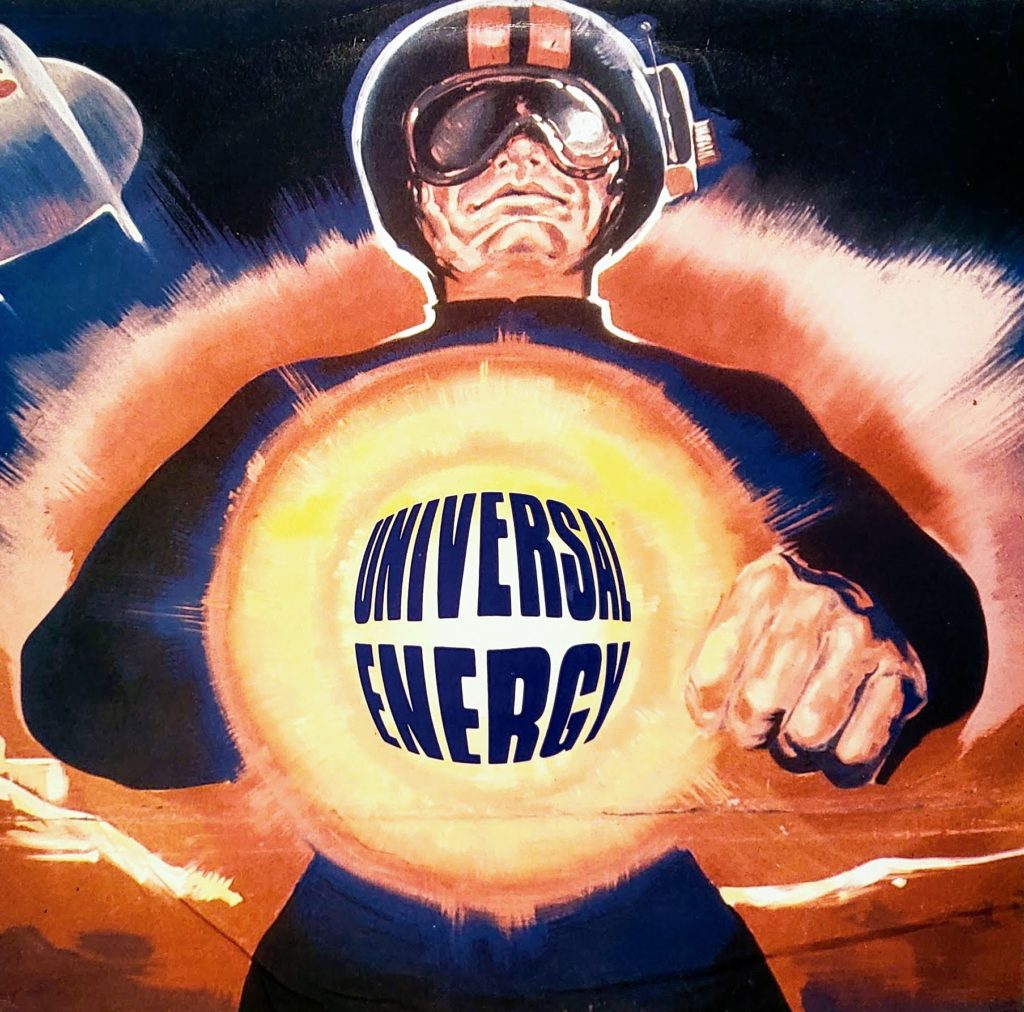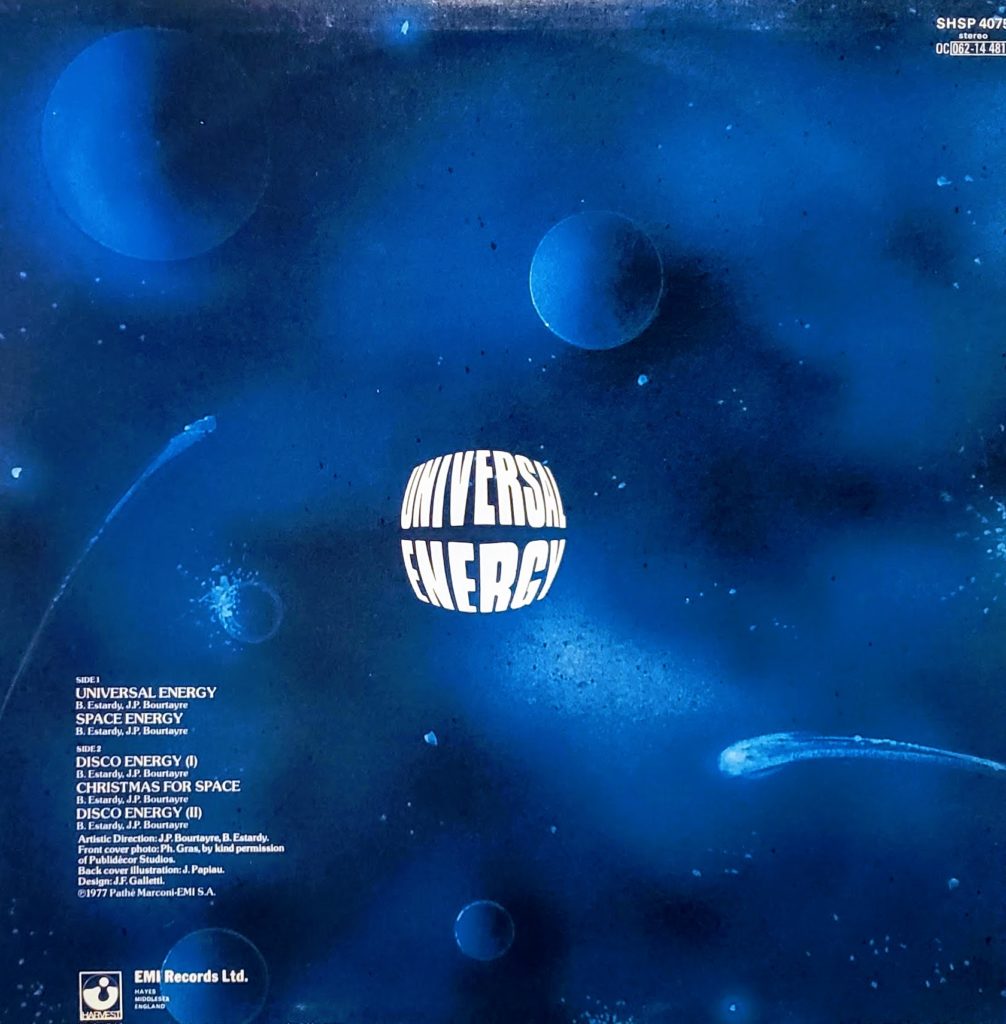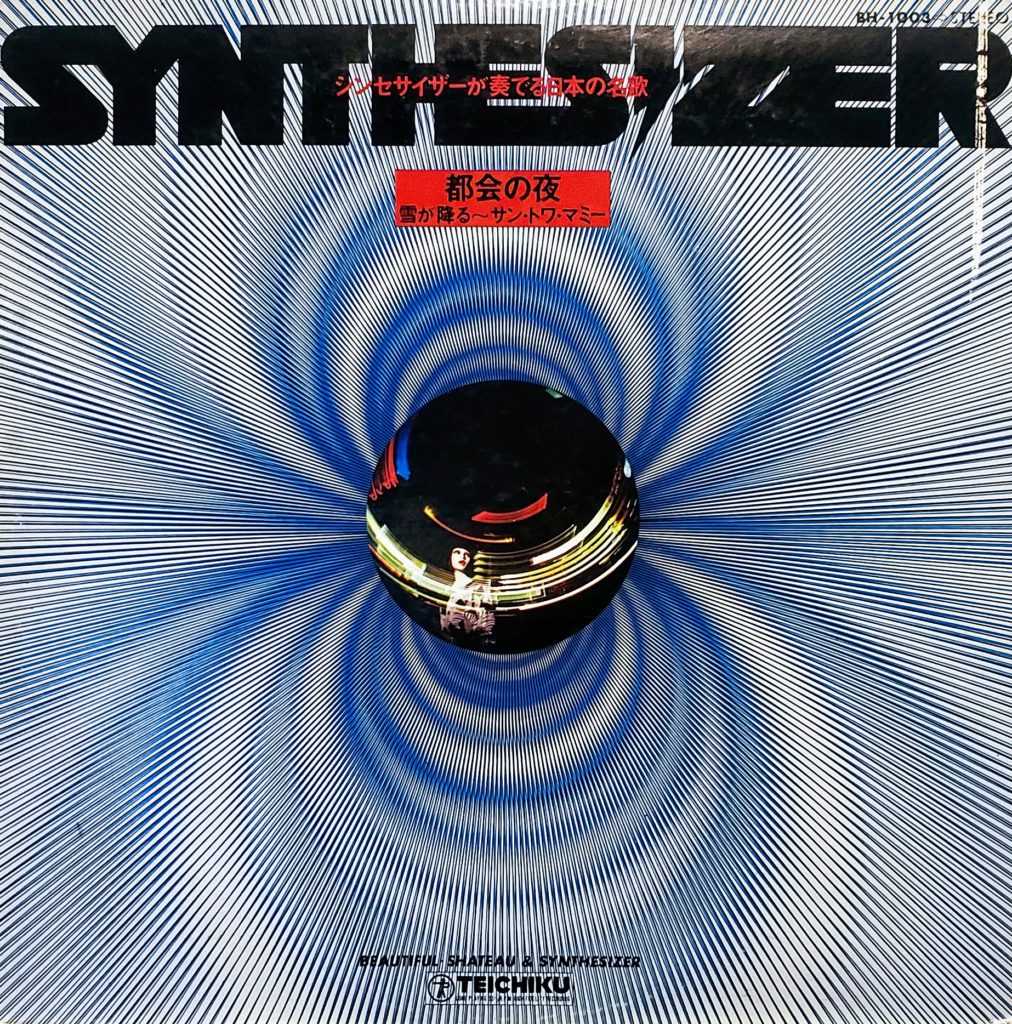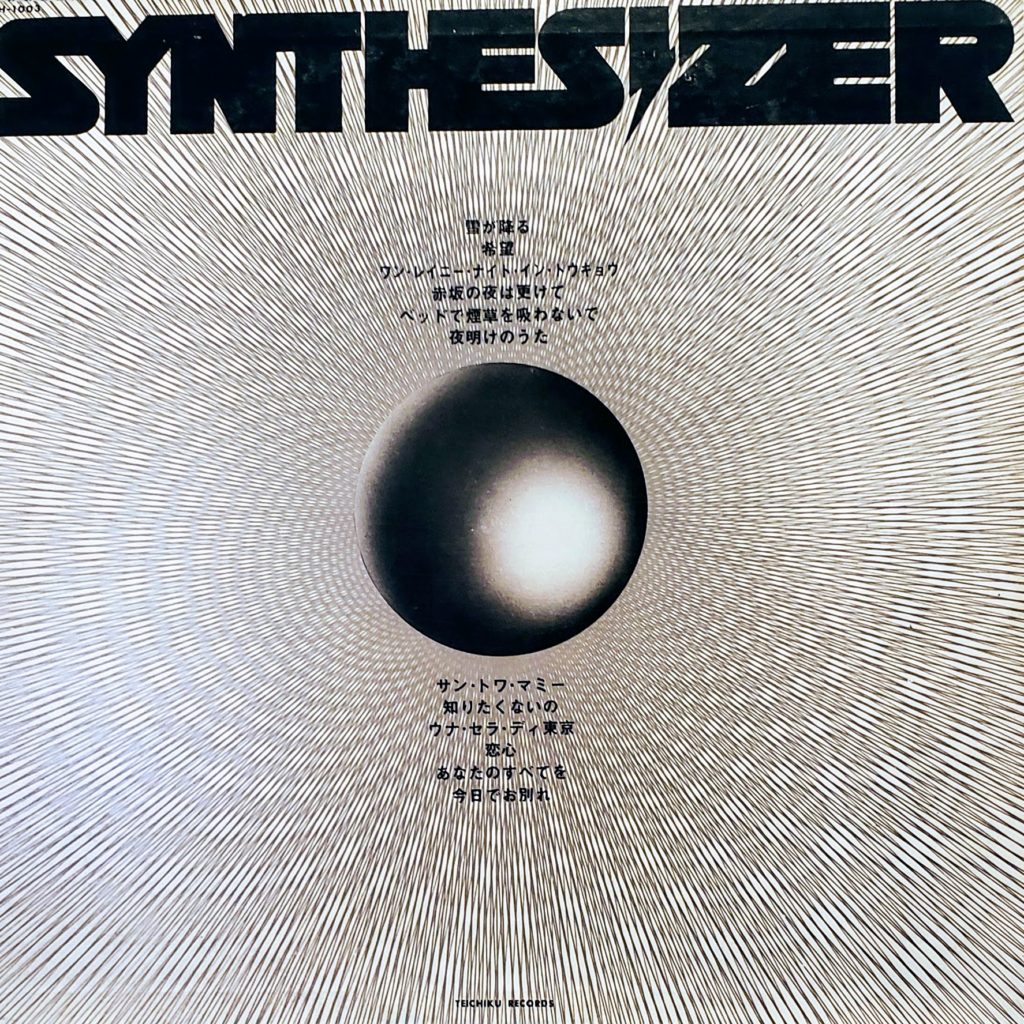Tonight’s post was supposed to go up last week, it was also originally going to be much longer. But while writing it, the post kind of became a whole other thing that was way off topic and much more about disco, disco’s legacy, and anti-disco sentiments, eventually becoming a whole separate piece over at my other blog (that I’m once again trying to get into the habit of updating more often). So if you want to read my thoughts on disco, disco demolition, and why the later was NOT a homophobic racist reactionary movement. Go check that out.
And if you want to hear some goofy disco while reading that, I got you covered here.
Universal Energy
Universal Energy
Space Energy
Disco Energy I
Christmas From Space
Disco Energy II
I don’t know much about Universal Energy. Okay, scratch that, I know next to nothing about Universal Energy, because no one knows much of anything about Universal Energy. The group was a collaboration between French composers Jean-Pierre Bourtayre and Bernard Estardy. Their sole self-titled release features just six tracks and is barely more than 30 minutes long, and that’s all they ever did together. Both did a ton of music outside Universal Energy though. Bourtayre is an acclaimed composer and songwriter in France, and Estardy would continue to release dance music under a variety of pseudonyms throughout his career, and worked behind-the-scenes for more acts than I can even count.
I know nothing of their other work, so I can’t speak of it. But Universal Energy is pretty fun. This is prime space disco; combining sci-fi themes and sounds with four-on-the-floor dance beats. Space disco wasn’t the most popular of disco sub-genres at the time. There weren’t many mainstream space disco hits. The only one I can think of is probably Meco’s disco remix of the Star Wars Theme, which is kind of cheating. And actually, I really wouldn’t even call that space disco. Sure, the subject matter is literally space, but there’s nothing “spacey” about the song’s sound aside from the fact that it’s the Star Wars Theme.
A lot of Moroder’s work has been classified as space disco (at least on the subpar space disco wikipedia page it has been) and I don’t know if I agree with that either. Morder’s best disco was almost entirely electronic, obviously, but most of it didn’t really incorporate sci-fi themes or sounds. “The Chase” and “I Feel Love” certainly didn’t. His reworking of theme to Battlestar Galactica did, but again, that’s cheating.
If anyone knows any other space disco (not including disco by the group Space, I have all that), let me know in the comments. I want to hear more of this stuff. I would preferably like music from the 70s, but newer stuff that falls under the space disco moniker would be dope too.
Enjoy the intergalactic grooves. I hope to get a few more posts out in the next couple of weeks. I’m off to the states in the middle of August. If history is any indication, it’ll be hard for me to get more than a post or two online during the month I’ll be away. Family obligations (and alcohol obligations that come after them) usually limit my writing output when I’m in the states.







